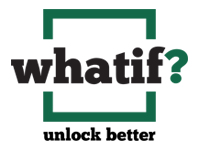“Look, no one has all the answers, all the time.”
The problem is if you are right then the other party feels they must be wrong. That’s not conducive to developing intimacy and building trust.
This is the second in a series of three Whatif Wednesday Thought Letters on unlocking your better leader.
Time to Read: 3 min.
Last week I raised the first of three big questions every leader needs to answer. “Who am I and who do I want to be?” I hope it was good food for thought on the importance of developing more than competence as we work to unlock our better selves.
This week’s question is, “How do I engage with others and how do I want to engage?”
CXOs spend their hard-earned political capital on people they trust and who they believe have their back. Why would they take the risk with any one else? I will be open to being vulnerable with you if you are open to being vulnerable with me. I will trust you if I know you have my best interests at heart.
Unfortunately, many leaders conflate vulnerability with weakness. They believe not having answers erodes their credibility and reliability. They do not realize that vulnerability is a superpower that leads to deep and trusting relationships. Look, no one has all the answers all the time.
The way to unlock intimacy and lower self-orientation is to ask questions. It’s simple, but it works. Again, some leaders and advisors see asking questions as a bug not a feature. A great read on this is Humble Inquiry.
There are two ways we can approach any conversation or interaction: through advocacy or inquiry. We can lead with a point of view and defend it when challenged because we want to make sure others understand us, prove we have answers, and show that we are right. The problem is if you are right then the other party feels they must be wrong. That’s not conducive to developing intimacy and building trust.
Conversely, we can ask thoughtful questions steeped in curiosity to gain a deeper understanding of others, their concerns, and challenges. Thoughtful questions show humility and empathy. Thoughtful questions also provide the context which allows us to relate our knowledge more insightfully. A good rule of thumb to adopt is, content without context is nothing more than pretext.
What if we went into every conversation with the goal of making others feel heard and understood? What if we asked questions rooted in curiosity to understand someone’s context? What if we put our agenda on hold so that we could better understand other’s agendas? Could this demonstration of empathy build intimacy and trust?
So, how do you engage and how do you want to engage? What small step could you take today to be more ask-oriented in your conversations? When you adopt an inquiry mindset, you will see a dramatic change in all your relationships. Great leaders and advisors share a common trait. They are good listeners who ask lots of questions.
Next week I’ll cover the third big question. Let me know your thoughts in the meantime.


Leave a Reply